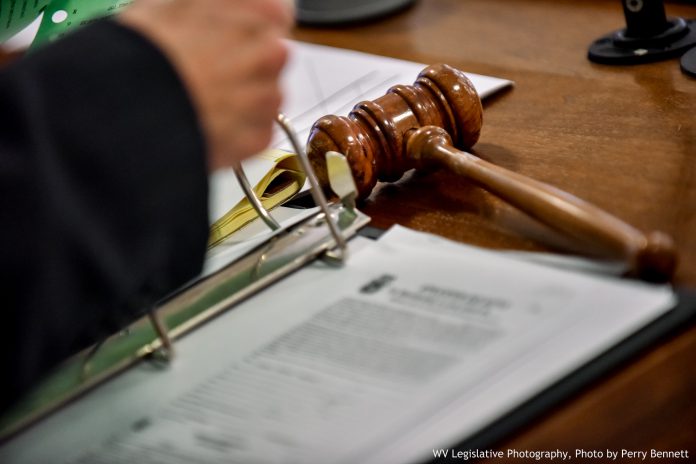The private sector has always been heralded for its structure and efficiency in its operations, and should be applauded. However, efficiency and good management practices are not only relegated to private industry but are demanded of government. Upon the founding of our nation, certain rules and procedures were established to maintain the democratic process and were copied by the states. The West Virginia Constitution mandates each step of the legislative process. While ensuring a balanced budget is the only requirement set forth by our State Constitution, the ways and means of progress requires further legislative action. The West Virginia Legislature not only adheres to the State Constitution but also has devised its own sets of rules established by each body to effectively manage its operations. The State Constitution requires that the second Wednesday every January, except years which follow a gubernatorial election, be the first day of session and that the Legislature meet for 60 consecutive days thereafter. In years following a gubernatorial election, the Legislature convenes upon the second Wednesday in February and then meets for its 60 consecutive day session. As established in West Virginia Code, the 20th day of each legislative session is the deadline for the submission of Legislative Rule-Making Review bills. According to the rules of the Senate, the 41st Day is the last day to introduce bills in Senate. This rule does not apply to originating or supplementary appropriation bills, nor does it apply to Senate resolutions or concurrent resolutions. Likewise, as set forth by the rules of the House, the 45th day is the last day to introduce bills in House of Delegates. Again, this does not apply to originating or supplementary appropriation bills. In both bodies, on the 47th day, bills are due out of committees in their respective house of origin to ensure three full days for readings in the other chamber. The 50th day, by a joint Senate-House rule, is the last day to consider a bill on third reading in its house of origin. Again, this does not include budget or supplementary
appropriation bills. As set forth in the State Constitution, the 60th and final day of the legislative session will end with the Legislature adjourning at midnight. Any regular session may be extended by a concurrent resolution adopted by a two-thirds vote of the members elected to each body and only for the purpose of completing work on the State Budget. Parliamentary procedure dictates how debate is handled and ensures that proper decorum is followed on the floor when addressing issues and members alike. Proper parliamentary procedure preserves the order and manner in which each body must follow. Each body also follows a specific Order of Business, which varies slightly between chambers, to complete the business of the day. This order includes introducing bills to be passed, reading bills and even introduction of guests. Bills may be read on three separate days, as is prescribed by the constitution, or constitutional rules can be suspended by a vote of four-fifths of the membership of the respective body and a bill can be read three times on one day. Bills to be read a third, second and/or first time are placed upon calendars which are overseen by the Rules Committee in each chamber. In the House, a consent calendar was added last year and bills which are reported out of committees with unanimous consent are placed upon this calendar to ensure an efficient and effective legislative process is maintained. However, a bill could be removed from the consent calendar by the request of a single member if there is a dispute as to how quickly a measure is moving. Also in the House, any bill not reported by unanimous consent from a committee will be placed on the House Calendar for consideration. In the Senate, all bills and resolutions reported from committee are placed on the Senate Calendar for consideration. Even though lawmakers are counted on to enact the laws that govern the state, they too follow the rules and guidelines that allow them to govern.

